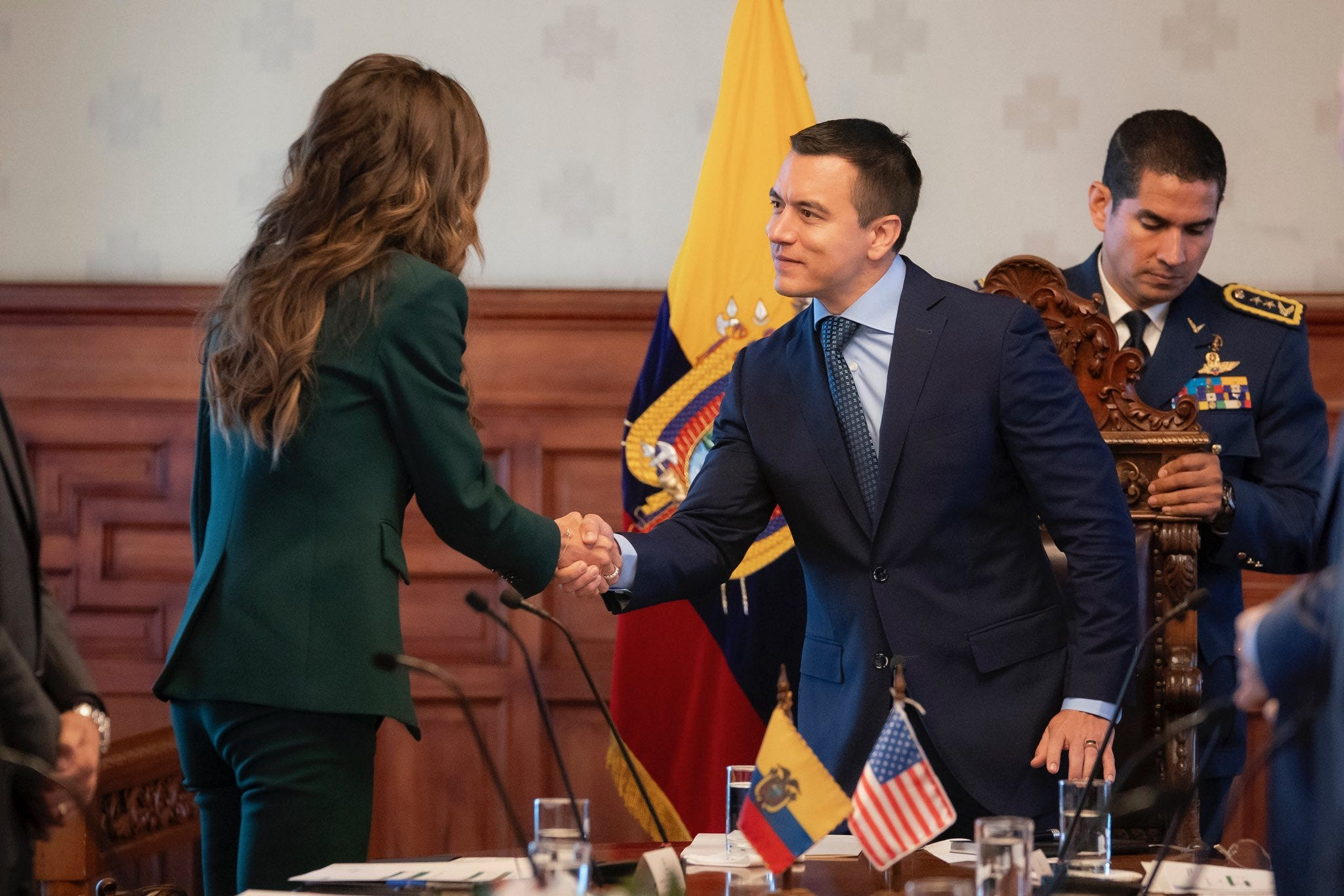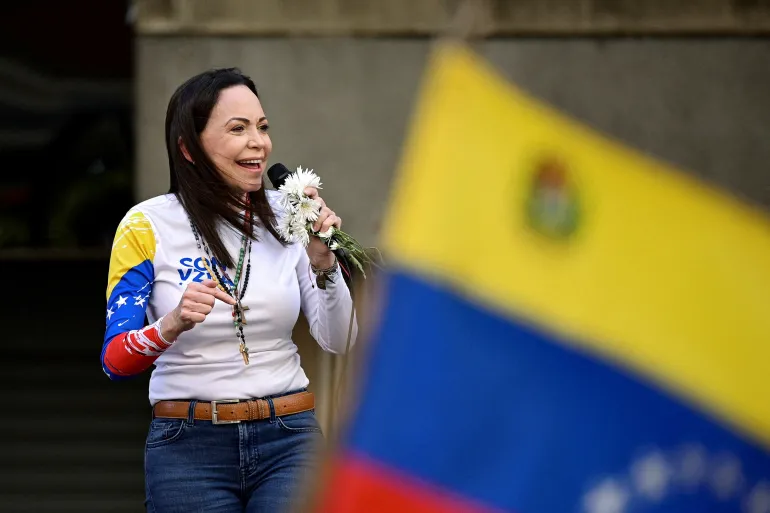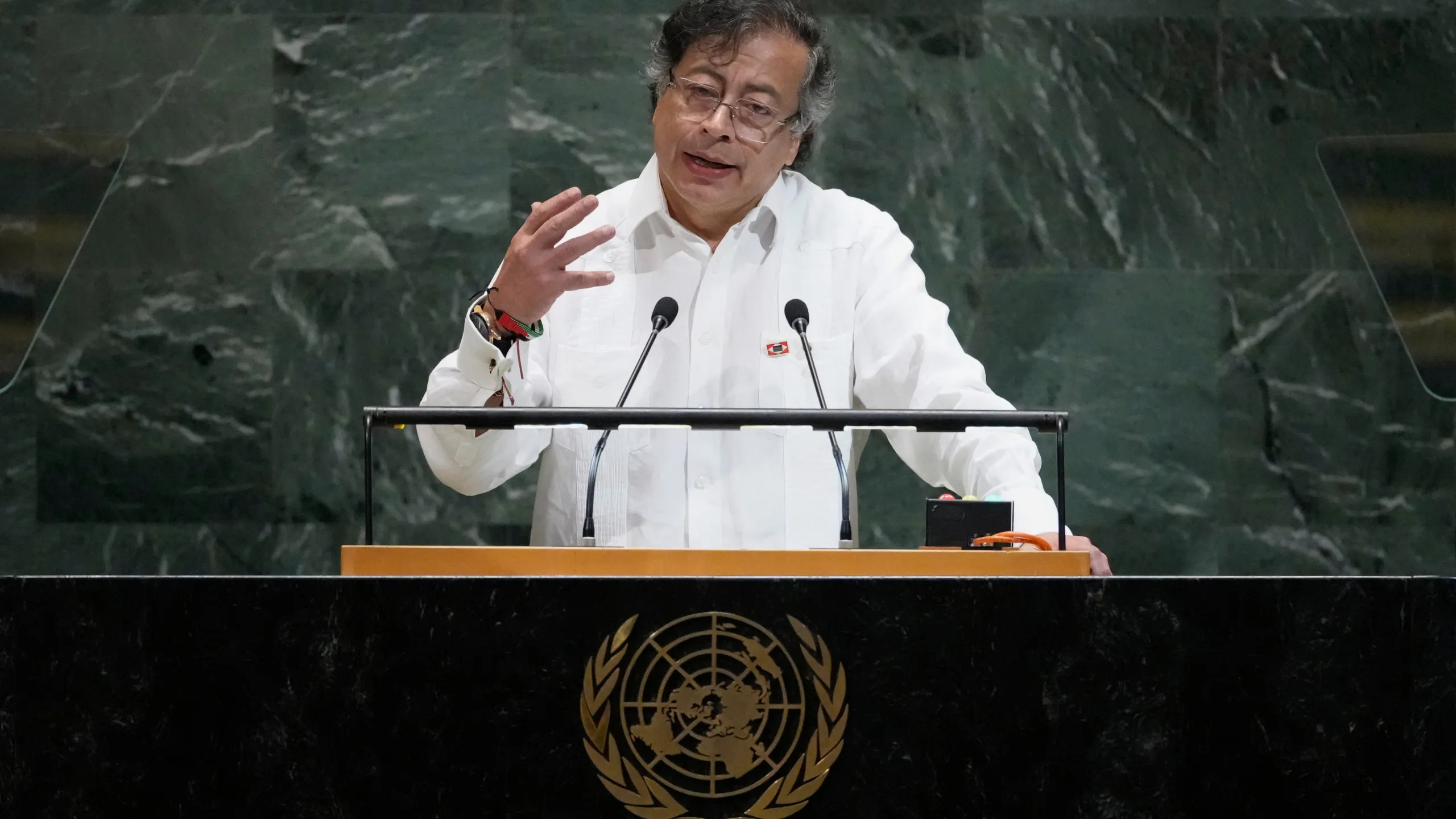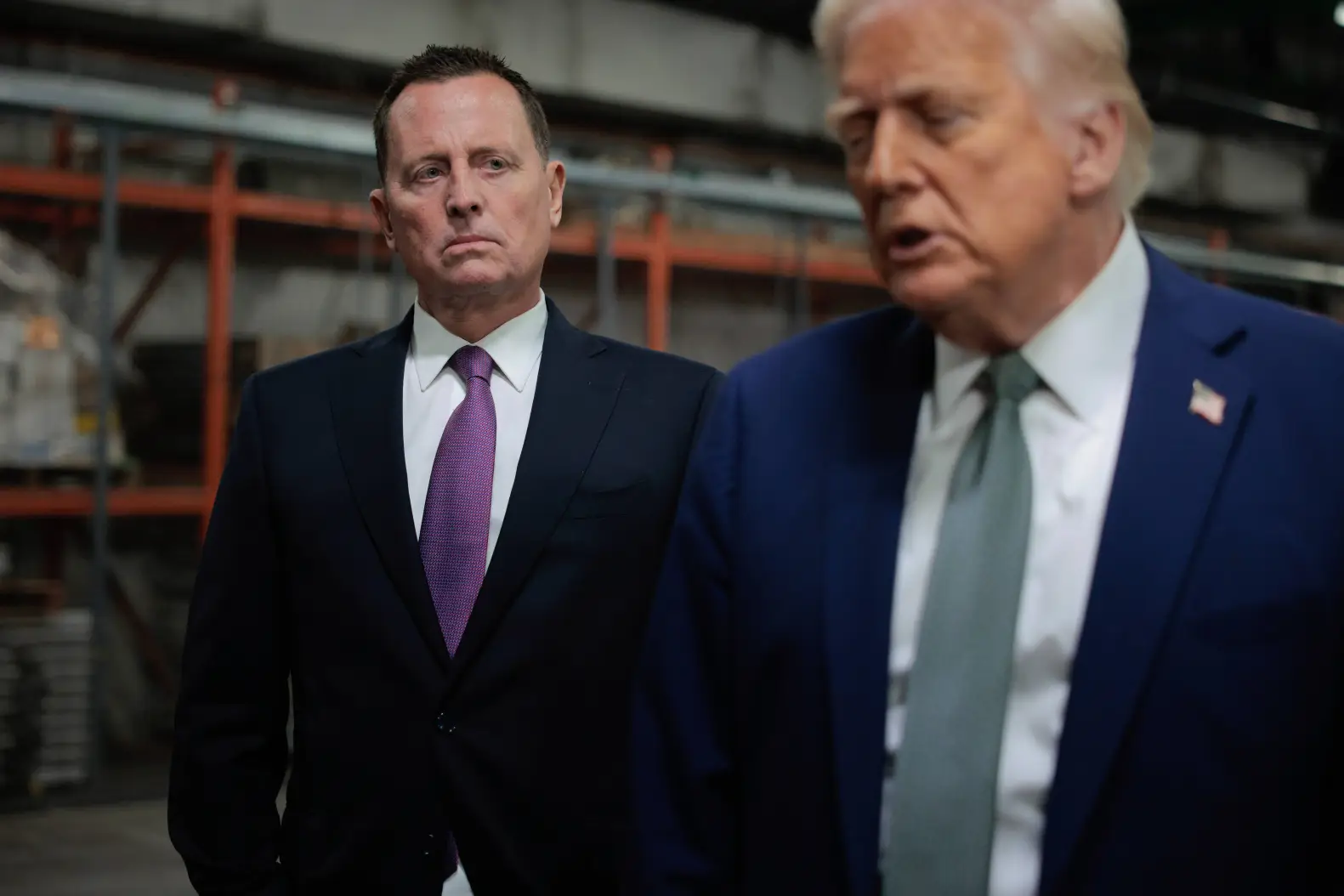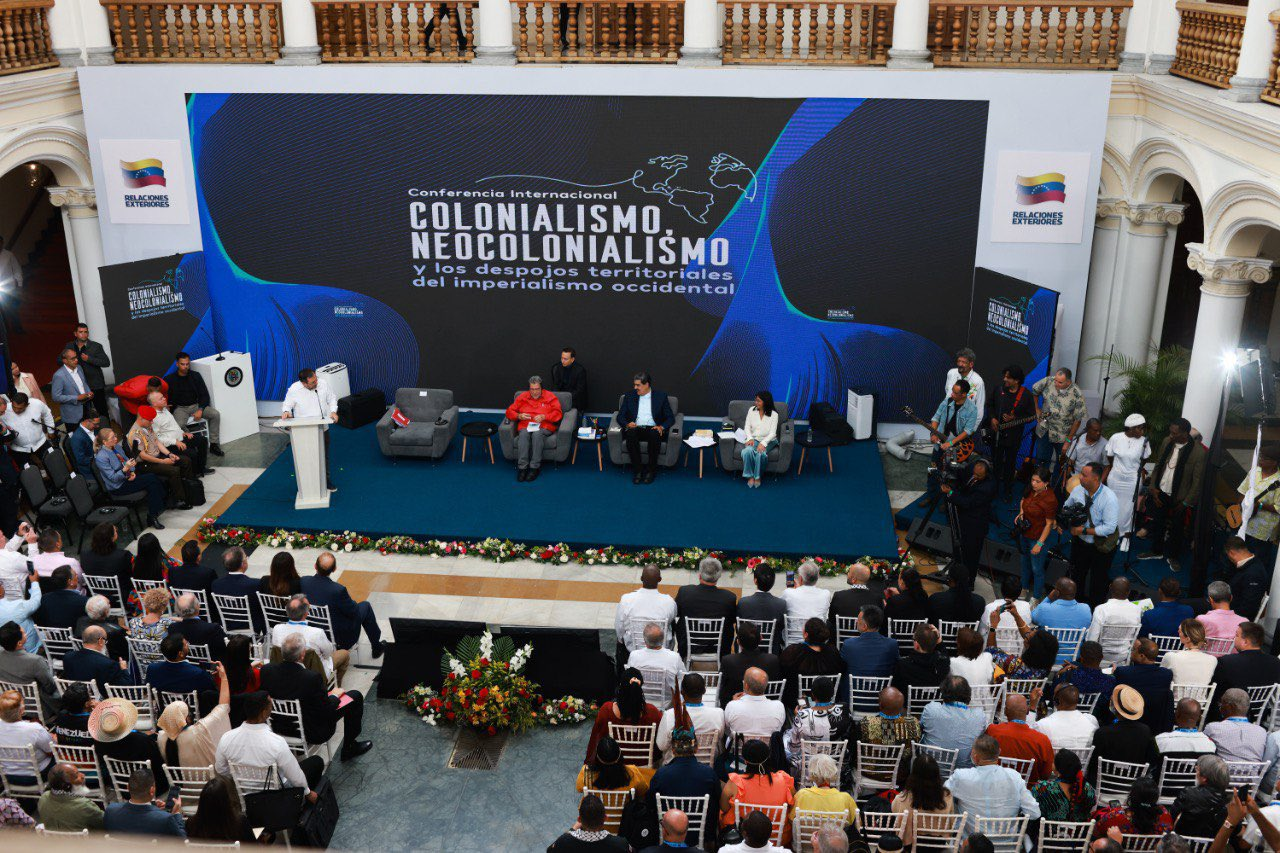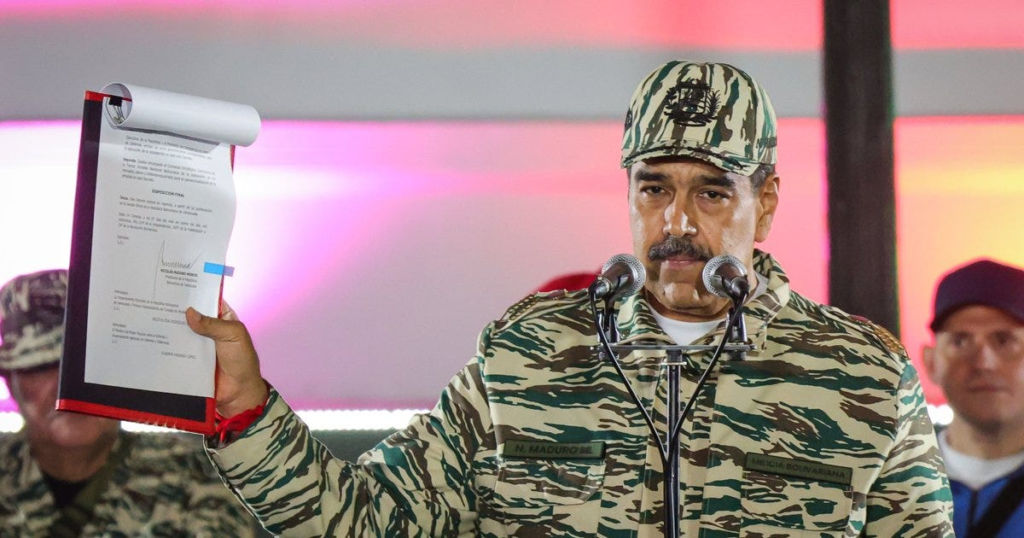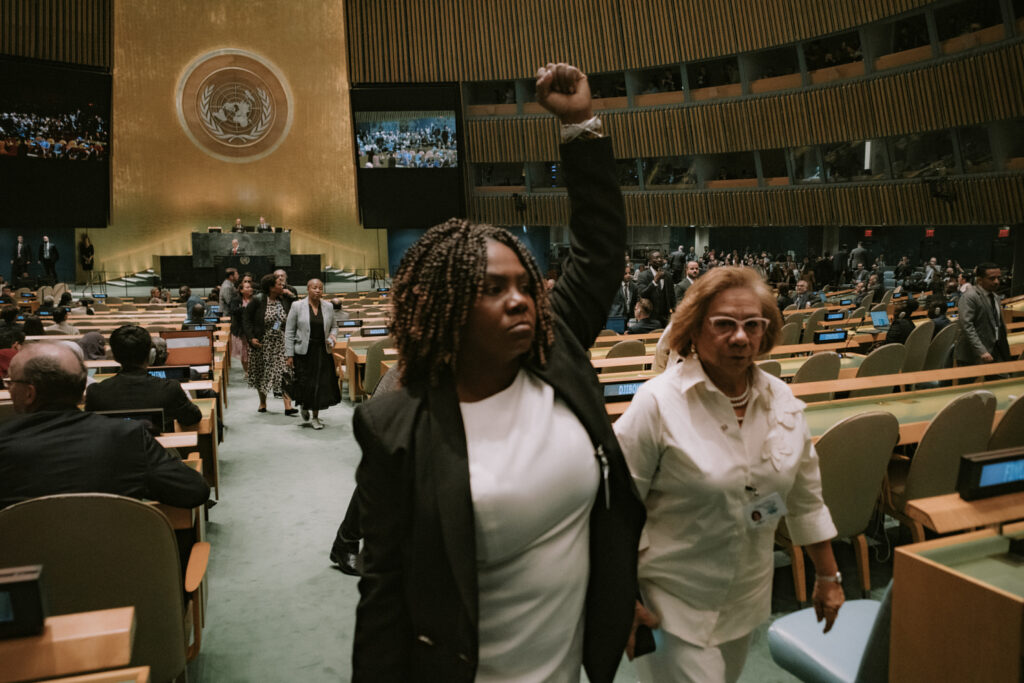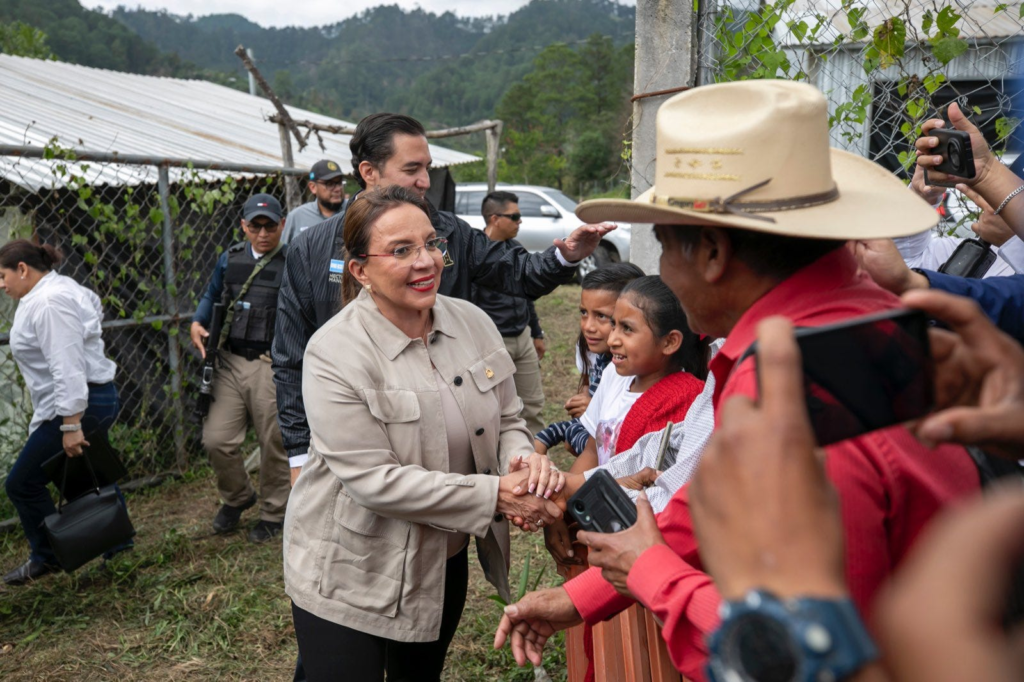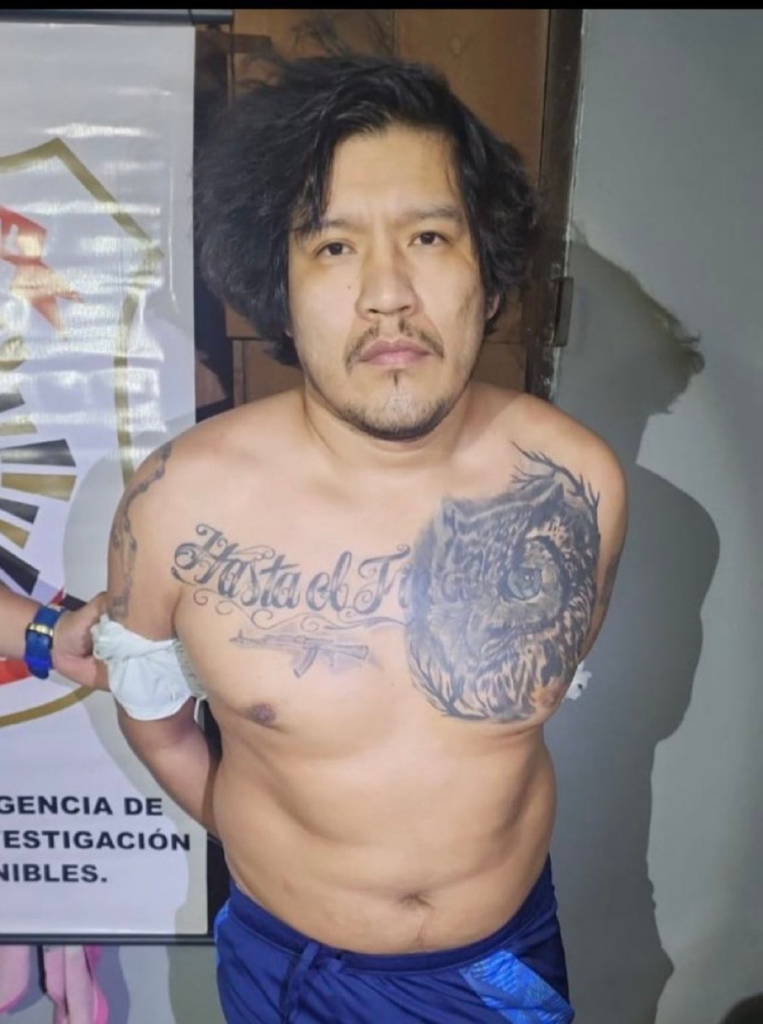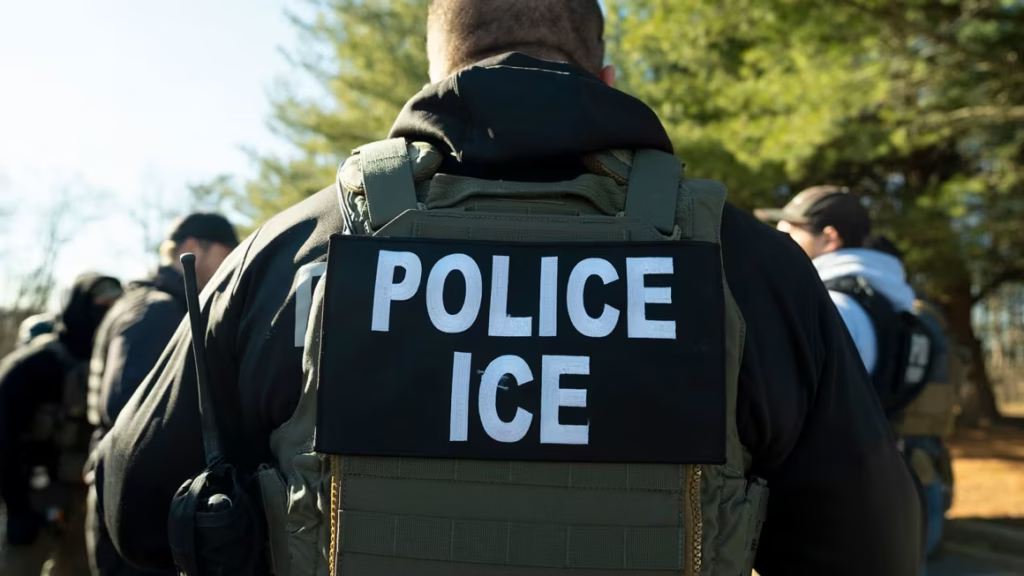Quito, August 3, 2025 – Following up on an earlier trip in late June to Central America, where the Secretary of U.S. Homeland Security Kristi Noem entered into pacts with Guatemala, Honduras, Costa Rica, and Panama to collaborate on initiatives to combat international crime networks and violent drug trafficking organizations, the government of Ecuador welcomed the U.S. diplomat to further strengthen their bilateral security partnership as Noboa’s war against his nation’s street gangs continues to ramp up.
In a meeting with the Ecuadorian President Daniel Noboa, Foreign Minister Gabriela Sommerfeld, and Interior Minister John Reimberg, the Department of Homeland Security stated its visit to Quito was to “discuss efforts to strengthen regional security, enhance international law enforcement cooperation, and restrict illegal migration.”
The remit of the visit echoes some of the same aims that were involved in Noem’s earlier trip to the Isthmus, through which analysts estimate up to 90% of cocaine distribution passes through from South America, destined for the U.S. Southern border.
U.S. DHS also issued a statement announcing the signing of a “memorandum of understanding (MOU) for a law enforcement officer liaison exchange program between U.S. Customs and Border Protection (CBP) and the National Police Department of Ecuador.”
A similar arrangement was also agreed to with Costa Rica, in which the United States “offered assistance to Costa Rican authorities to help monitor the entry of travelers and imported goods into the country by enhancing the presence of technology in their operations”, as was reported by Sociedad in a previous article.
Another agreement was signed in late June between Noem and Guatemalan Interior Minister Francisco Jimenez, an initiative that will establish a Joint Security Program that will provide U.S. Customs and Border Protection agents in Guatemala City who will help train local Guatemalan agents to screen for “terrorist suspects” transiting the country.
The visit to Ecuador is a symbolic move that demonstrates to the people of Ecuador, and to the various criminal drug organizations that are now on the defensive, that the government in Quito is operating with the explicit backing of the United States government.
The founder of former private security firm Blackwater, Eric Prince, has also retained security arrangements with the Ecuadorian military and national security apparatus in an advise and consent role to help facilitate a more offensive posture against the country’s powerful narco organizations.

